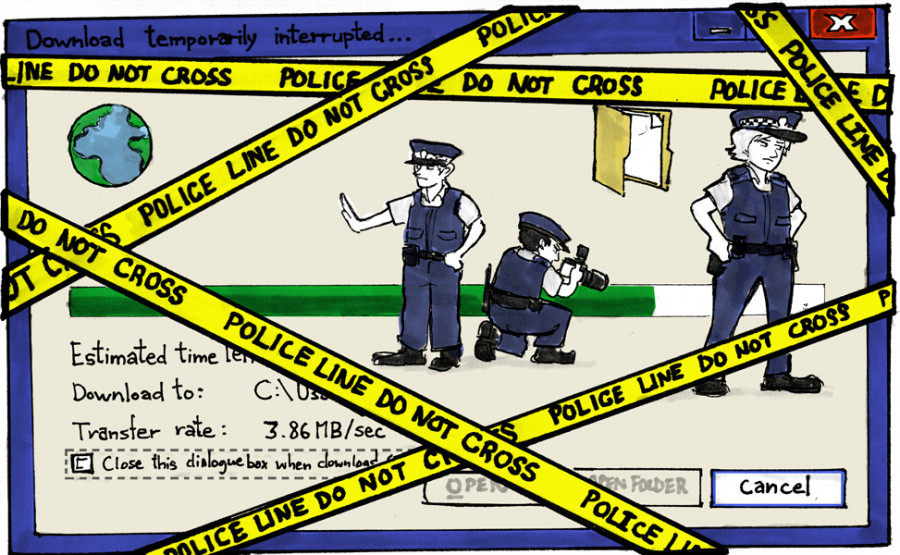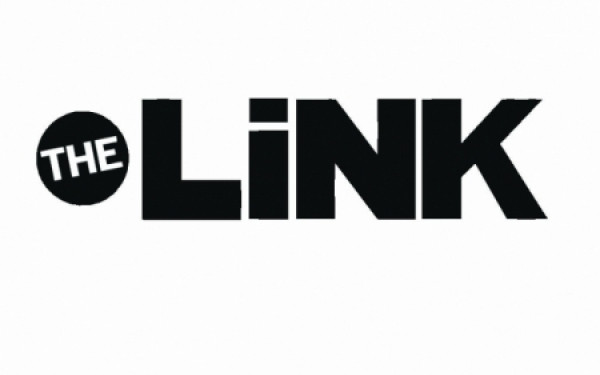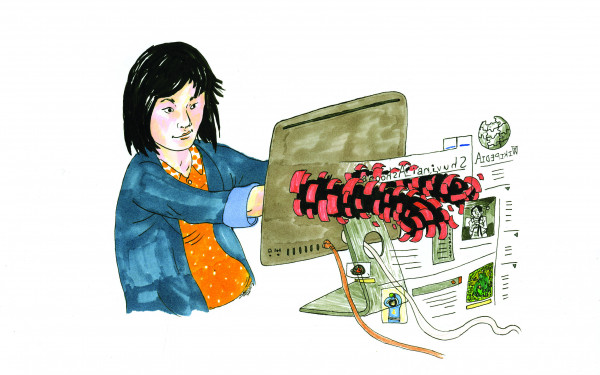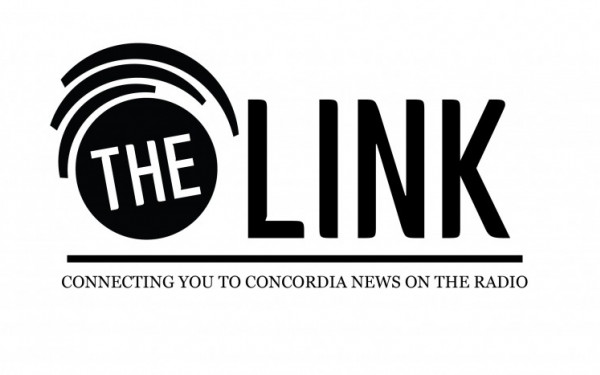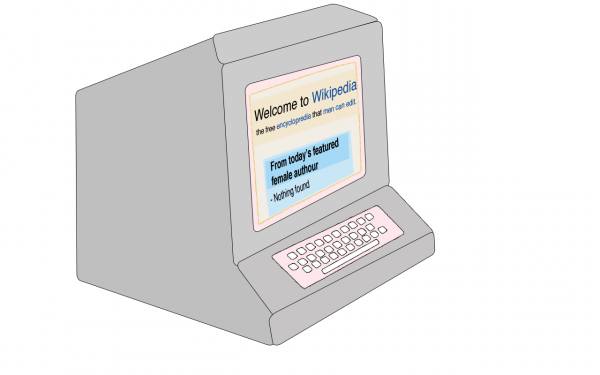Mega-Explode
What Reactions to U.S. Gov’t’s MegaUpload Takedown Say About the War on Digital Piracy
The popular site that made it easy to for users to upload music, movies and TV shows for download symbolizes exactly the kind of thing that SOPA and PIPA were attempting to combat—an infinite, perfect warehouse for distributing copyrighted material.
The suit against Megaupload and its related entities charged them with robbing American shareholders of upwards of $500 million.
The American government is worried about the major record companies’ shareholders lost profits—an aspect of illegal downloading that doesn’t even begin to enter the discussion for many who fret primarily about stealing from the artists.
This is a perfect example of the absurdity of the debate that currently encircles copyright protection and illegal downloading.
Masturbation and Marijuana
There’s a moment in Concordia graduate Brett Gaylor’s 2009 copyright documentary RiP: A Remix Manifesto when Cory Doctorow, self-styled “online cultural critic” and writer for the tech website BoingBoing.net, compares the moral aspect of illegal downloading to masturbating.
“I think that what’s happening with copyright is the same thing that happened with masturbation. People are starting to admit to each other, ‘Yeah, I do it too…’”
It’s an interesting comparison, one that also extends to marijuana usage. What does one do about these practices that are condemned as sinful or illegal by the moral arbiters of the day, but are extremely popular and widespread regardless?
It seems as though eventually something has to give—either those at the top change their stance, or the masses at the bottom change their habits.
In the case of masturbation, it was the former. Religion became less of a dominant cultural force, and masturbation—a pretty low-profile sin, let’s be honest—ceased to be an issue for all but the most authoritarian and fundamentalist of believers.
Marijuana hasn’t reached that stage yet, but given the Liberal Party’s recent attempts to legalize it in Canada, perhaps it will eventually. The days of Reefer Madness long gone—it seems every other film and TV show now treats weed with a knowing wink.
Internet piracy remains a pressing issue, however. The SOPA/PIPA issue is proof—the Orwellian bills were misguided attempts to assuage Hollywood and the record companies on the part of American legislators.
Soft on Piracy
When Congress announced it would be postponing the vote on the bills indefinitely on Friday in response to the widespread online outrage, many saw it as a victory for the common Internet user.
Nevertheless, it’s doubtful that this will be more than a reprieve, a temporary cease-fire in a continuing battle. Like the concept that you can make money off your intellectual property, downloading appears to be a hard habit to break.
It’s a problem compounded by the fact that, in many cases, online piracy takes place in the same contexts as perfectly legal content consumption and the distinction is now being made all the murkier by businesses who are adapting to the new model.
If some music makers and companies provide free content, then it’s conceivable that an album might not be worth anything, intrinsically.
Significant portions of the content available online are infringing on copyright as well (just take a tour of YouTube), but their continued presence makes them seem less illegal, while some videos and songs are taken down vigilantly.
As downloading becomes more prevalent, simple, and accepted—the industries realized suing everyday people for exorbitant amounts didn’t make for good optics—and with the growing shift towards free content, a certain entrenching has occurred in the pro- and anti-piracy camps.
That fact became clear when Anonymous, the nebulous Guy Fawkes mask-wearing hacker collective, took credit for a series of distributed denial-of-service attacks that crashed the websites for the U.S. Department of Justice, Universal Music, the Recording Industry of America Association and the Motion Picture Association of America.
As the news broke on Twitter, it was hard not to feel a certain surge of pride. It was a classic David-and-Goliath story, re-writ digital for the 21st century. But in the days that followed, the facts that came out complicated that narrative.
Kingpin Dotcom
With his lavish, jet-setting lifestyle and the shotguns, expensive artworks and multiple luxury cars that were seized during the Jan. 20 raid on his New Zealand home that led to his arrest, it’s hard not to see Megaupload founder Kim Dotcom as Hollywood fodder—and who better to skewer the man than the people he was getting rich stealing from?
With $42 million dollars of profit in 2010 alone, Dotcom’s Megaupload became a gigantic, well-oiled machine for copyright infringement, a website that rose through the seemingly infinite ranks to become one of the web’s most-used tools.
While the site masqueraded as an online content locker that perhaps turned a blind eye to the digital piracy it was being used for, it’s clear in the U.S. government’s indictment that Megaupload’s entire business model revolved around illegal content.
For one, they paid premium users in return for downloading popular material and secondly, while they deleted child pornography and pro-terrorism propaganda, they danced around the issue when it came to simple copyright infringement, deleting URLs to pirated material—but not the copies on their servers, allowing other URLs linking to the same content to remain active.
With the dust beginning to settle, it became clear what Megaupload really is: a sophisticated crime ring that actively sought to encourage piracy in order to enrich its founders.
In that light, the DDoS attacks by Anonymous—which used unsuspecting third-party computers to help crash the sites that had drawn their ire—seem more like misguided, knee-jerk, vigilante justice on the part of a nebulous cyber-gang than anything.
The illegal download business model of people like Kim Dotcom and the hacktivism of the Anonymous collective, however thrilling they might seem in the short term, only serve to undermine whatever arguments there are for keeping the Internet free and unregulated in the minds of the world’s media corporations and policymakers.
If we are to have an open worldwide web, it looks like we’ll have to fight for it. But that’s a fight we’ll have to win in public relations terms if we have a hope of battling legislation that attempts to throw the Internet baby out with the digital piracy bathwater.
However clever and technologically deft Anonymous and its ilk are, the strongest argument for an open Internet isn’t a DDoS attack—it’s a bustling web, alive with downloads both paid-for and free, where, whatever money is made, and however it’s made, the old adage rings true—content is king.

